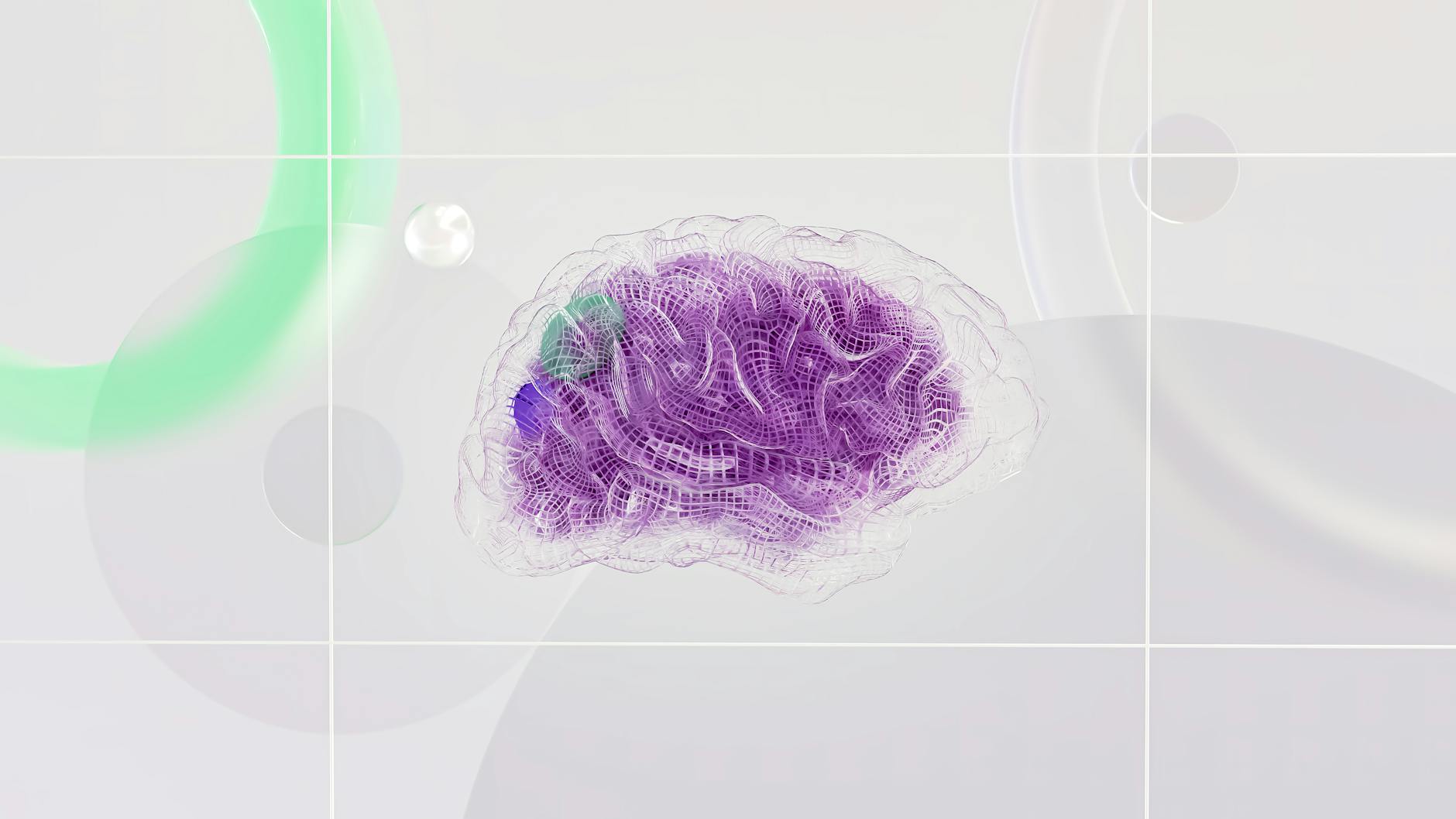How AI Course Creation transform in 2025

What is AI Course Creation?
AI course creation refers to the use of artificial intelligence tools and technologies to design, customize, and optimize educational content. In 2025, AI will not only assist in content creation but also enhance how courses are delivered, making them more engaging and personalized for learners. This innovation is breaking barriers, enabling educators to focus on fostering creativity and critical thinking while automation handles repetitive tasks.
The Rise of AI-Driven Course Creation Tools
AI-driven course creation tools are no longer futuristic concepts. They are already making waves with their ability to streamline course design. By 2025, these tools will become more advanced, offering intuitive interfaces and smarter algorithms.
With AI-driven analytics, educators can:
- Identify gaps in learners' understanding.
- Optimize course delivery times and formats.
- Deliver customized training paths for diverse audiences.

AI to Create Training Materials: A Game Changer
Creating compelling training materials has traditionally been a time-consuming process. Enter AI training platforms that use advanced algorithms to design content that’s engaging, interactive, and aligned with learning objectives.
- Automatically generate course outlines and detailed lesson plans.
- Suggest multimedia elements, such as videos and infographics, to complement text-based materials.
- Transform complex concepts into digestible modules for learners.
Tools like BrainCert AI curriculum generators are empowering educators and organizations to focus on delivering knowledge rather than building courses from scratch.
Platforms such as top AI course builders are already paving the way for educators to create engaging content effortlessly. From quizzes to multimedia lessons, these tools automate the heavy lifting, freeing up more time for educators.
AI Education Platforms: The Ultimate Ally
Imagine an AI education platform that not only understands your teaching goals but also helps you achieve them with minimal effort. AI is not just a tool; it’s an ally in designing effective learning experiences. By analyzing learner data and feedback, these platforms ensure continuous improvement of course content and delivery methods.
Whether you’re a professional trainer or a first-time educator, AI education platforms enable you to:
- Create personalized learning paths.
- Automate routine tasks like grading and reporting.
- Enhance accessibility for learners with disabilities.
Automation in Content Development
AI automates tedious aspects of course creation with AI, such as video production, text generation, and visual design. For instance, AI tools can analyze a topic and generate well-structured course materials within minutes. This ensures faster turnarounds and consistent quality.
Consider the efficiency of platforms using AI to generate SEO-friendly scripts or even interactive simulations. According to Forbes, tools like Google's Generative AI simplify content creation for educators and businesses alike.
Instant Course Deployment
In 2025, launching a course will be as simple as uploading an outline. AI systems will handle everything from content organization to deployment across multiple platforms. This eliminates barriers, making course creation accessible even to educators with minimal technical expertise.
Personalized Learning Experiences
Personalized learning is a top priority for educators and students alike. AI makes this possible by tailoring content to individual learners' needs. This shift is especially important for retaining engagement and improving outcomes.
Adaptive Learning Technologies
Adaptive learning systems analyze student progress in real-time. They assess weaknesses and adjust content delivery accordingly. AI ensures that learners always receive material at the right difficulty level, creating a supportive and personalized environment.
According to the International Conference on Artificial Intelligence in Education, adaptive technologies in 2025 will further intertwine AI with teaching frameworks.
Enhanced Student Engagement
Interactivity is key to keeping students motivated. AI-powered tools can create engaging experiences, including simulations, quizzes, and gamified learning paths. Advanced natural language processing enhances chatbots, enabling them to guide students more effectively through challenges.
Ready to revolutionize the way you create and deliver courses?
Embrace the power of AI and transform your educational journey today!
Schedule Your Demo NowChallenges and Ethical Considerations
Despite its promise, AI in course creation brings challenges. Data privacy, security, and content quality control are critical issues that demand attention.
Data Privacy and Security
AI systems rely on vast amounts of data to function. Protecting students' sensitive data is a major concern, especially when using cloud-based platforms. Regulations and ethical practices must evolve to ensure compliance with privacy standards.
Quality Control in AI-Generated Content
AI is great at generating content, but it still requires oversight. Automated systems may inadvertently produce inaccurate or biased information. Educators must remain vigilant, reviewing and refining AI outputs to maintain educational integrity.
Predictions for AI in Education by 2025
Experts predict several exciting developments for AI in education:
- Hyper-Personalized Learning: AI will analyze individual learning styles and preferences to deliver custom-tailored content.
- Real-Time Analytics: Teachers will have instant insights into student performance, allowing for timely interventions.
- AI Tutors: Virtual tutors will complement classroom learning, providing 24/7 assistance.
- Emotional AI: Tools that adapt based on students’ emotions.
- AI-Coached Peer Learning: Facilitating collaboration among students.
- Blockchain Integration: Ensuring secure credentialing and certification.
How Can Educators Leverage AI Tools for Course Development?
- Automate repetitive tasks like grading and scheduling.
- Create interactive and engaging multimedia content.
- Simplify the process of course updates to reflect the latest knowledge and trends.
Best AI Course Creator Tools in 2025
The future of online learning lies in leveraging the best AI course creator tools available. These tools integrate seamlessly with online learning course creation software, offering a holistic approach to course design.
- BrainCert: Easy to create a online courses in a Minutes and Best ai course Builder.
- Kajabi: all the features to help you create engaging courses and sell them from one platform.
- Articulate 360: Perfect for creating eLearning courses.
- Teachable: The AI translations and subtitles improve the accessibility of your video learning materials.
- Synthesia: For producing AI-generated instructional videos.
Steps to Use AI in Course Content Creation
- Identify the learning objectives and target audience.
- Use AI tools to gather and analyze data.
- Leverage AI to generate content, such as lesson plans or assessments.
- Review and refine AI-generated content to align with educational goals.
- Integrate the content into your learning management system (LMS).
Integrating AI into Existing Education Platforms
AI can seamlessly integrate into existing platforms like BrainCert, Moodle or Blackboard, enhancing their functionality with features like adaptive learning paths, chatbots, and automated grading systems.
What Are the Benefits of Using AI in Online Course Creation?
Enhancing Content Creation Efficiency with AI
AI drastically reduces the time required to create educational materials, enabling educators to focus on delivering high-quality instruction.
AI-Powered Personalization in Online Learning
Adaptive algorithms ensure that learners receive content suited to their pace, interests, and knowledge level.
Cost-Effectiveness of AI in Course Development
By automating labor-intensive tasks, AI lowers the costs associated with course development, making education more affordable and scalable.
What Skills Do Course Creators Need to Utilize AI Effectively?
Essential AI Skills for Course Creators
- Understanding of AI tools and their capabilities.
- Basic programming knowledge to customize AI functionalities.
- Data analysis skills to interpret insights generated by AI.
Developing an AI Curriculum for Course Creation
Institutions should offer AI-focused training modules to prepare educators for this paradigm shift.
What Challenges Might Educators Face When Implementing AI?
Common Obstacles in AI Course Creation
- Resistance to change among educators.
- Data privacy and security concerns.
- High initial investment in AI tools and infrastructure.
Addressing Concerns About AI in Education
Transparency in AI processes and proper training can alleviate skepticism and foster acceptance.
Strategies to Overcome Implementation Challenges
- Start with small-scale pilot projects.
- Provide ongoing support and training for educators.
- Collaborate with tech partners to streamline integration.
How Will AI Change the Future of Learning Beyond 2025?
Long-Term Impacts of AI in Education
AI will continue to evolve, making education more inclusive and effective. Future classrooms may blend AI with augmented and virtual reality to create immersive learning experiences.
Conclusion
In 2025, AI course creation will revolutionize education. By automating complex tasks, tailoring learning paths, and redefining curriculum, AI will transform schools, universities, and corporate training programs. The balance between automation and human oversight will remain critical, ensuring that education retains its quality and ethical standing. For educators and learners alike, the future holds immense possibilities.
